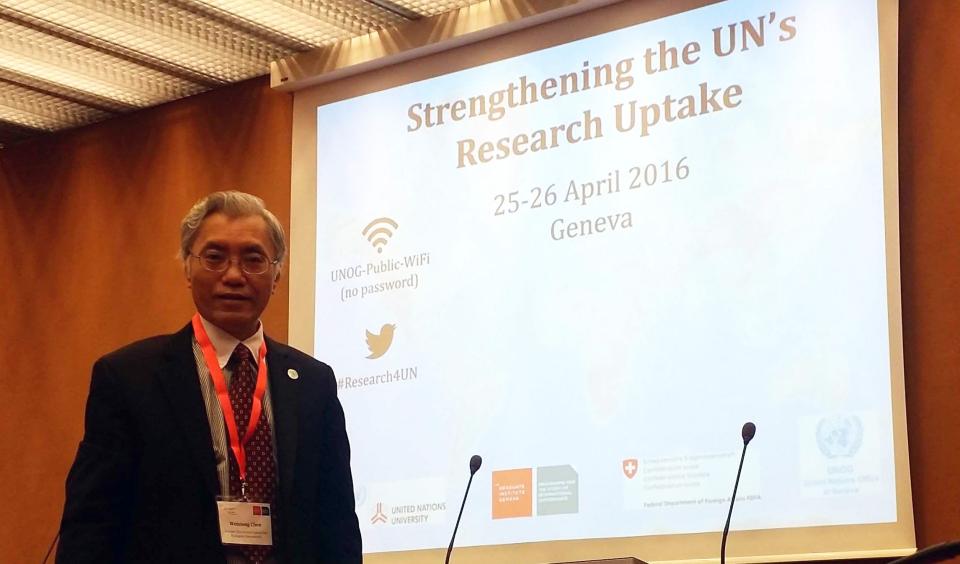
Mr. Weixiong Chen, Deputy Executive Director, CTED.
The Counter-Terrorism Committee Executive Directorate (CTED) this week called for increased investment in research aimed at strengthening the UN’s capacity to identifying emerging terrorist threats.
Mr. Weixiong Chen, Deputy Executive Director, CTED.
“There is merit in close and enhanced partnerships with academia and think tanks on ‘deep-dive’ research into new and emerging threats. Investment needs to be doubled to bring the research community’s vast reservoir of wisdom into the policymaking process”, said Mr. Weixiong Chen, CTED Deputy Executive Director.
Mr. Chen was addressing around 90 UN agencies and research entities attending a round table on strengthening UN research uptake.
The event was held in Geneva on 25-26 April 2016, and was organized by the UN University and Graduate Institute of International and Development Studies in Geneva, in partnership with the UN Office in Geneva and Switzerland’s Federal Department of Foreign Affairs.
“To better implement the requirements of Security Council resolution 2129 (2013) and other relevant resolutions, we must cultivate and build confidence among Member States, UN agencies and the academic world”, Mr. Chen added.
The discussions focused on ways to identify UN knowledge gaps and research needs in key policy areas, adapt research design to this effect, and make better use of research outputs to strengthen evidence-based policy development.
Opening session of the event.
Mr. Chen called for a gradual approach in matching research entities with policymakers, but stressed the need for the UN to work with a broad range of research partners.
The UN must also ensure that it can quickly access timely, needs-based research to meet the rapidly evolving global peace and security landscape.
The Counter-Terrorism Committee launched its Global Counter-Terrorism Research Network in February 2015 and held an open briefing with its research partners in November 2015 to discuss ways to strengthen and share research into the foreign terrorist fighter threat.

